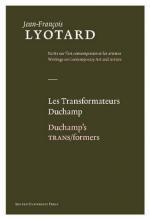|
This section contains 10,067 words (approx. 34 pages at 300 words per page) |

|
SOURCE: “The Postmodern Kantianism of Arendt and Lyotard,” in The Review of Metaphysics, Vol. XLII, No. 1, September, 1988, pp. 51-77.
In the following essay, Ingram compares how Hannah Arendt and Lyotard use Kant in their formulations of the basis for legitimate judgement.
[O]nly a redeemed mankind receives the fullness of its past—which is to say, only for a redeemed mankind has its past become citable in all its moments. Each moment it has lived becomes a citation à l'ordre du jour—and that day is Judgment Day.1
Walter Benjamin
The past decade has witnessed an extraordinary resurgence of interest in Kant's writings on aesthetics, politics, and history. On the Continent much of this interest has centered on the debate between modernism and postmodernism. Both sides of the debate are in agreement that Kant's differentiation of cognitive, practical, and aesthetic domains of rationality anticipated the fragmentation of modern society...
|
This section contains 10,067 words (approx. 34 pages at 300 words per page) |

|


